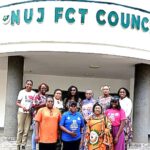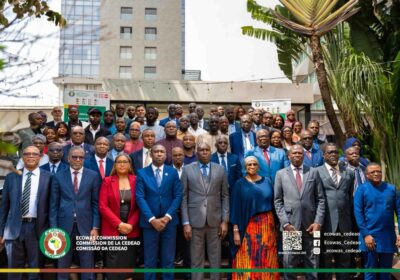The 37th AFC Meeting Opens in Abuja Nigeria,Set to Redefine Regional Future Agenda as ECOWAS turns 50.
By Raymond Enoch
With the golden jubilee celebrations of ECOWAS still fresh in memory of the region, the Economic Community of West African States (ECOWAS) has opened the 37th Ordinary Session of its Administration and Finance Committee (AFC)I today Sunday 15th June, 2025.
The three-day meeting, holding at the ECOWAS Commission Headquarters, has drawn high-ranking delegates from across the ECOWAS Member States including Commissioners, Parliamentarians, heads of ECOWAS institutions, diplomatic representatives, and technical experts — all tasked with evaluating the mid-term implementation of programs, projects, and decisions critical to regional integration and sustainability.
Speaking at the opening ceremony, H.E. Damtien L. Tchintchibidja, Vice President of the ECOWAS Commission, set the tone with a powerful call for unity, resilience, and bold reform in the face of growing instability and uncertainty. She described ECOWAS as being at a historic inflection point, shaped by the dual realities of its 50-year legacy and the existential questions posed by the recent withdrawal of three member states.
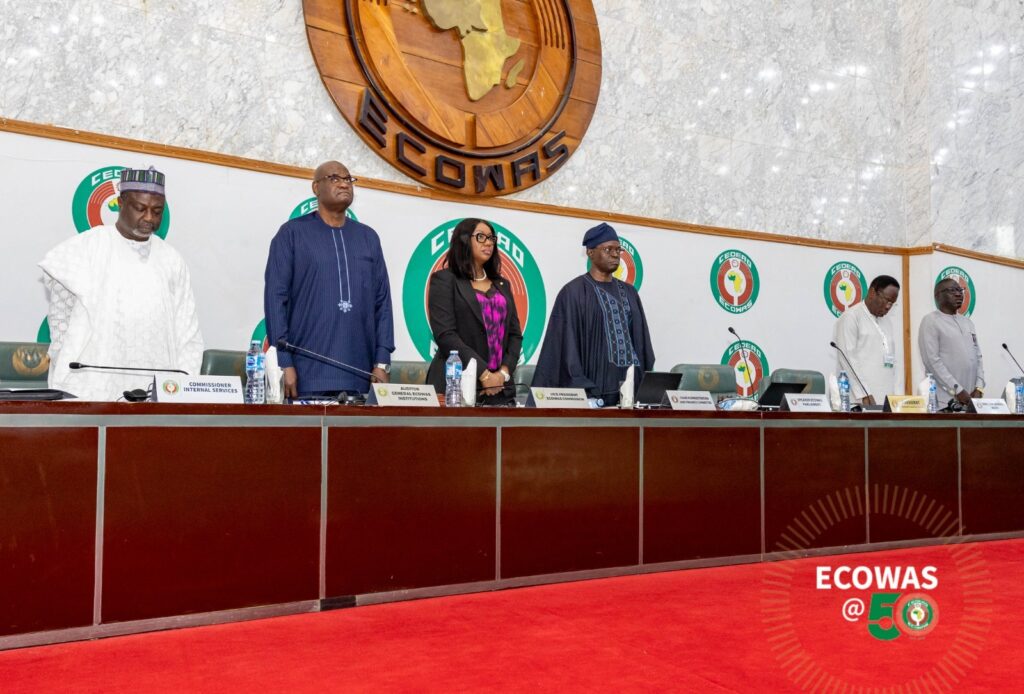
“Our region is at a crossroads — the stakes are high,” she said. “We must summon the collective will to innovate, reform, and recommit to the principles that brought us together half a century ago.”
Tchintchibidja paid tribute to H.E. Bola Ahmed Tinubu, President of Nigeria and current Chair of the ECOWAS Authority of Heads of State and Government, for his leadership in navigating the bloc through turbulent times. She also praised member states for their solidarity during the ECOWAS@50 celebrations, especially the governments of Ghana and Nigeria for successfully hosting the key events in Accra and Lagos.
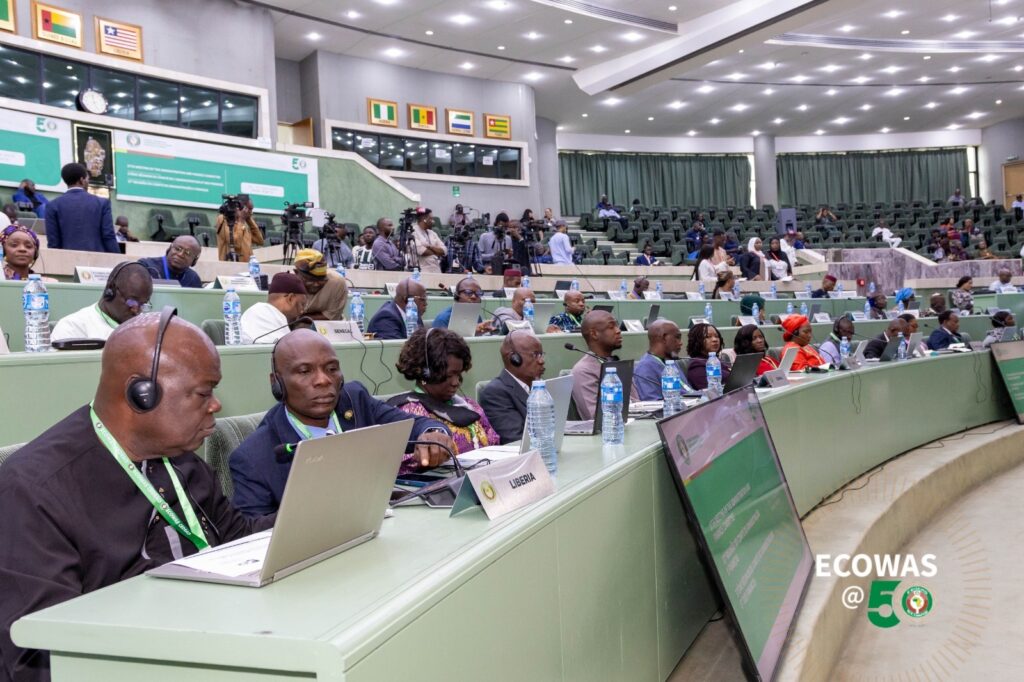
As the region reckons with economic pressures, security threats, and dwindling donor funding, Prof. Nazifi Abdullahi Darma, ECOWAS Commissioner for Internal Services, made an urgent appeal for internal innovation and self-reliance.
“The old models of donor dependency are no longer sustainable,” Darma warned. “In the face of global uncertainty, our survival depends on indigenous solutions, resourceful planning, and bold thinking.”
He highlighted the recent procurement of modern communication equipment as part of the Commission’s commitment to operational efficiency but emphasized that technological investment must be matched by smarter resource generation and utilization across institutions.
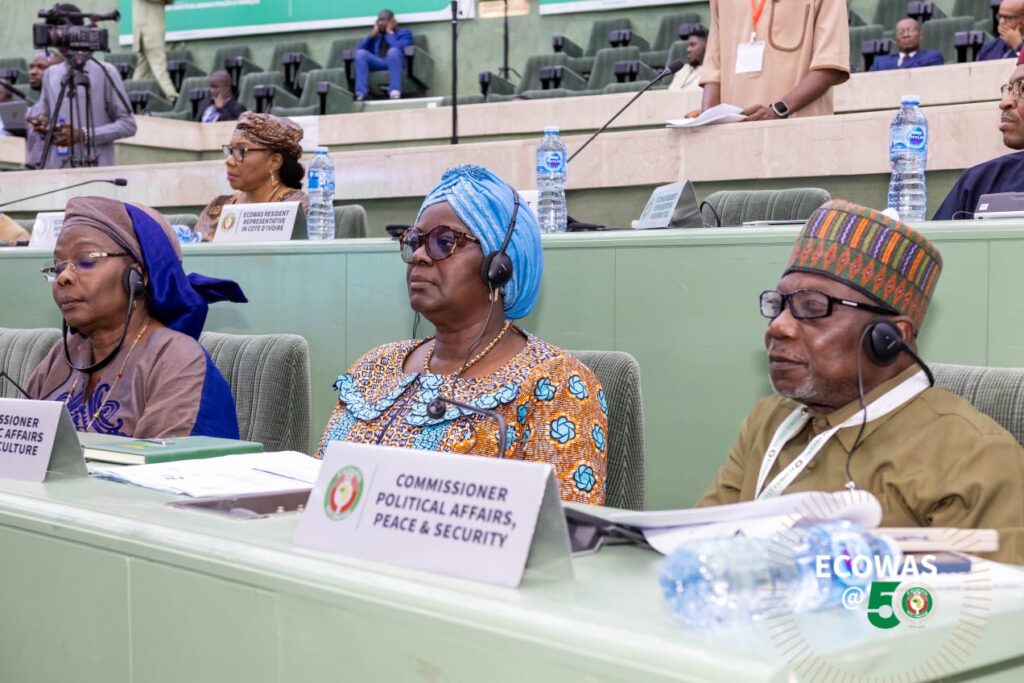
Also delivering remarks, Ambassador Olawale Emmanuel Awe, Chair of the AFC, commended the unwavering dedication of the ECOWAS Commission under Dr. Omar Alieu Touray and reaffirmed Nigeria’s role as a stabilizing force in the region. He applauded the strength of member participation as a sign of collective determination to protect the regional project, even as it faces new trials.
Awe addressed critical institutional gaps following the withdrawal of some AES (Alliance of Sahel States) countries and called for urgent recruitment and strategic staffing to preserve continuity and performance.
“We must act with urgency. These vacancies pose risks to our delivery capacity and the confidence of our citizens. This is the moment to consolidate—not retreat—from our mandate.”
The opening session also spotlighted the Contingency Plan on Member Withdrawal, which was adopted at the April 2025 Extraordinary Council of Ministers meeting in Accra. This plan sets the foundation for negotiations with departing states, with an emphasis on minimizing disruption and preserving the hard-won gains of regional integration.
Throughout the session, the golden jubilee theme — “Stronger Together for a Better Future” — was repeatedly invoked as a rallying cry, reinforcing the belief that unity remains ECOWAS’s greatest asset amid fragmentation.
Tchintchibidja announced plans for a “Summit on the Future of the Community”, which will include consultations with youth, women, and civil society actors. The summit is expected to drive new strategic directions and reforms aimed at strengthening ECOWAS’s institutional resilience, democratic governance, and economic development.
“The past fifty years offer valuable lessons,” she said. “But the future must be shaped by those who believe in a stronger, more responsive ECOWAS that meets the real needs of its people.”
As the AFC continues its deliberations over the next two days, expectations are high that the decisions and resolutions from this session will chart a bold new course for West Africa’s premier regional bloc.
The 37th AFC meeting not only represents a routine mid-term evaluation — it symbolizes a reckoning with ECOWAS’s identity, purpose, and future direction. In a region marked by fragility and promise, this gathering may well be remembered as the moment when West Africa chose courage over complacency.




